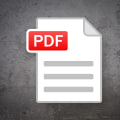Short-answer questions based on blocks 3 and 4 (answer each question in 300 words). Editing is an essential step in the drafting process, between the first draft and the review. It gives you the opportunity to have someone else look at your piece and give you suggestions to make it even better than it already is. And all this happens before they come to you.
This process of checking stories for grammatical errors, structure and style of sentences or syntax, clarification of facts and figures for easy comprehension and condensation to save space is editing. Editing involves making revisions and suggestions about the content of a document. It includes improving language accuracy, flow, organization and structure, and overall text readability. It also involves checking for grammatical and spelling errors.
Editing requires not only knowledge of the English language, but also intuition to know, at a glance, what is right or wrong on the page. Typically, one finds editorial assistants reporting to high-level editorial staff and directors reporting to senior executive editors. Mid-level newspaper publishers often manage or help manage sections, such as business, sports, and reporting. Similarly, ask how many rounds of edits they usually expect from customers or freelance writers if an editor commissioned you to write an article for them.
Using the best grammar checker you can afford will help you, and reduce the amount of time your editor spends on your work and potentially their fees. A good editor will know these style guides well, so any formatting problems will be fixed immediately. Similarly, if an editor commissioned you, ask him what the objectives of the piece are so that you can edit it accordingly. Similarly, if the editor commissioned you to write for publication, this step prevents you from sending a draft with silly errors.
Publishing companies can employ a team of in-house publishers, have a network of individual contractors, or both. The services provided by these editors can be varied and may include review, text editing, online editing, development editing, editing for search engine optimization (SEO), etc. As for academic journals, where spontaneous submissions are more common than commissioned works, the position of the magazine editor or editor-in-chief replaces the acquisitions editor of the book publishing environment, while the functions of production editor and text editor are maintained. A frequent and highly respected contributor to a journal can acquire the title of general editor or contributing editor.
An editor must also eliminate differences between text and tables, illustrations and citations. In addition to knowing how to write efficiently, you should also focus on learning certain editing skills to eliminate unwanted errors from your document. In a sense, when you edit your writing, you already become a reader and learn to see your work as if it were on the other side. Changes in the publishing industry since the 1980s have resulted in almost all book manuscript publishing being outsourced to independent text publishers.








